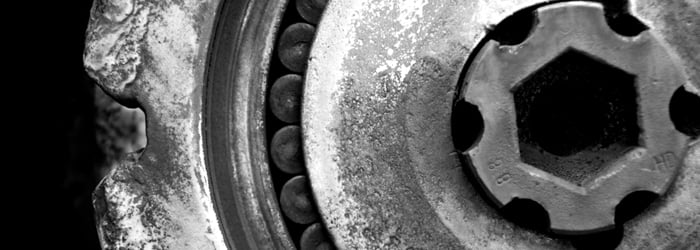Lube oil cleaning FAQ
Get answers to the most frequently asked questions about lube oil cleaning. You may also find more comprehensive explanations on our blog which covers topics relating to lube oil cleaning.

Q: What is a lube oil centrifuge?
A: A lube oil centrifuge uses centrifugal force to pull matters of different densities away from one another. Unlike other lube oil cleaning technologies, a lube oil centrifuge removes both solid and water particles in a single phase. It’s also notable for handling incidents of a sudden high influx of water without loss in cleaning efficiency.
Q: Is there a way to avoid lube oil contamination?
A: Even with the best efforts to avoid lube oil contamination, it can and does happen. Particles can enter the system with newly added oil, or are the result of internal wear. Water is another unwanted contamination factor, arising by either external or internal causes.
Q: How can I remove water from lube oil?
A: There are a few different technologies which remove water from lube oil:
- Separation (centrifugal, coalescence, gravity, absorbent polymer)
- Vacuum distillation
- Dehumidification
Given their removal capabilities, we focus on the most common technologies on the market, centrifuges and coalescers
Q: Is a centrifuge more efficient than a lube oil filter?
A: Yes. A centrifuge is more efficient than a lube oil filter because it cleans both solids and water contamination in a single phase. It does not require a pause in operations to switch out dirty filter elements. No mesh size has to be selected enabling all smaller particles to pass a filter. It maintains even cleaning capabilities with an influx of water.
Q: Can I save money with a lube oil centrifuge?
A: Yes. Compared with other technologies which removes both solid and water contaminants, for example, a lube oil filter and coalescer, it offers a lowered total cost of ownership (TCO).
Contributing factors to lowered total TCO:
- High-quality oil maintenance increases the lifetime of equipment and components, requiring less replacement of equipment and oil
- No regularly occurring costs for new filters elements
- Low operational costs
These are all ways to save money with a lube oil centrifuge.
Q: What lube oil centrifuges fit my process?
A: Lube oil centrifuges are available of different sized capacities, from simple plug and play units to larger integrated systems depending on your application needs.
Q: How can I avoid corrosion with lube oil centrifugation?
A: With the centrifuge’s ability to remove water out of the oil, corrosion can be avoided. The presence of water results in corrosion which leads to pitting damage in the components. This also results in metal particles chafing off to become solid contamination in the lube oil, further contaminating the lube oil. Lube oil centrifugation removes both water and solid particle contaminants so you can avoid corrosion. Leading bearing manufactures accept 500 ppm water but do recommend less than 200 ppm water. Water removal especially increases the lifetime of equipment significantly.
Q: What are the advantages of a lube oil centrifuge?
A: Advantages of a lube oil centrifuge include:
- Removal of solids and water contaminants in a single phase for increased efficiency of the lube oil
- Maintaining high quality oil extends the lifetime of equipment and parts
- Combined costs and expenses make it a great value, lowering the Total Cost of Ownership (TCO)
- A filter free system that doesn't require new filter and filter elements for operation. No filter element disposal or incurred costs, especially beneficial if you’re on a remote location
- Can run continuously with less schedule maintenance than alternatives
- The ability to securely manage a sudden high influx of water unlike other lube oil cleaning alternatives
Q: What are the advantages with lube oil filters?
A: Advantages with lube oil filters include:
- Relative operating simplicity- few moving parts
- Capital investment cost is low
- Particles larger than the mesh size are removed independent of their density
Q: What are the advantages with a lube oil coalescer?
A: Advantages with lube oil coalescer include:
- Relative operating simplicity - few moving parts
- Capital investment cost is low (below a certain capacity)
Q: Will the additives in the lube oil be destroyed with centrifugal separation?
A: No, the molecular alliance of the additives with the oil is stronger than the centrifugal force.
白皮书:润滑油清洁的重要性
希望了解有关润滑油清洁的更多信息?我们的白皮书为您提供了可用技术的全面概述,为您选择适合的应用及最佳技术提供指导。

